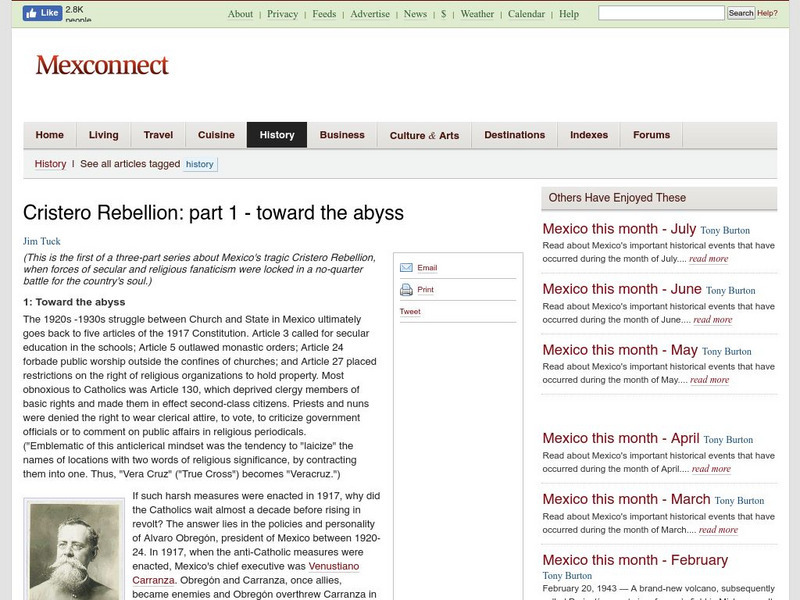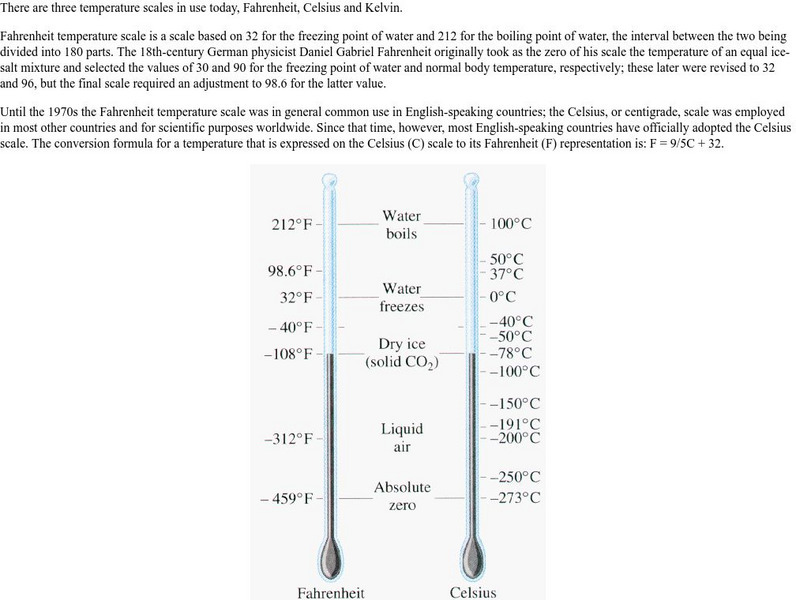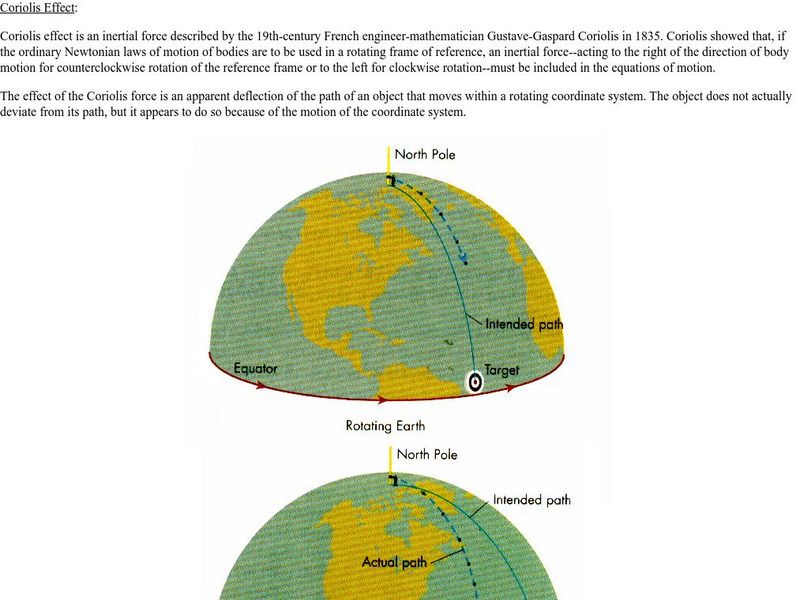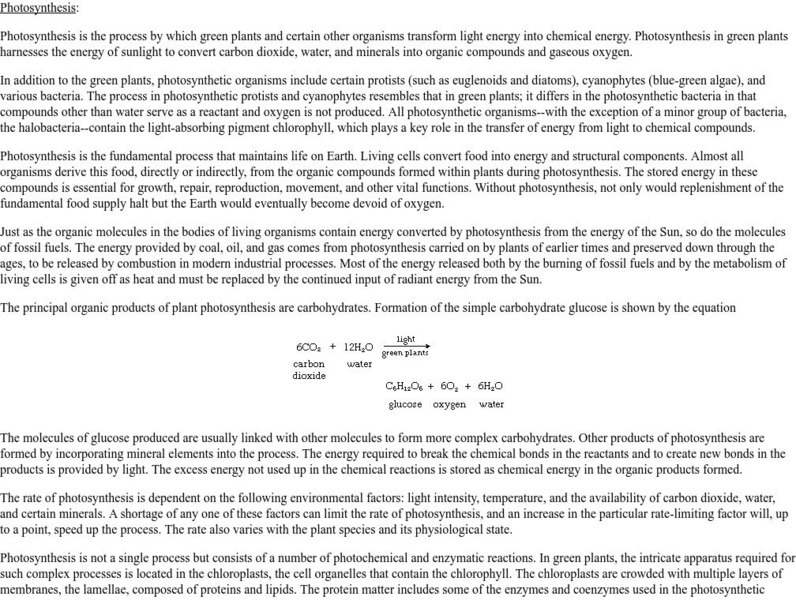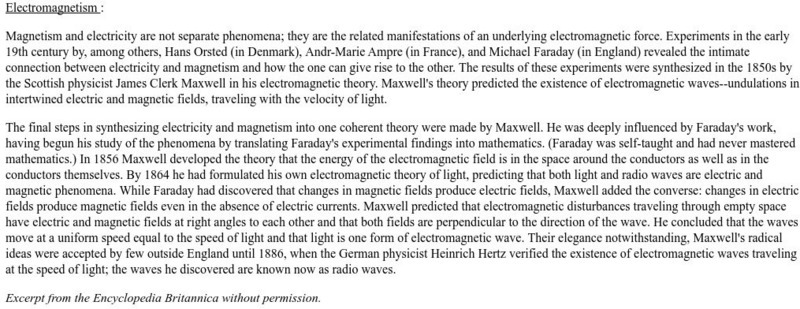CK-12 Foundation
Ck 12: Plix: Bathymetric Evidence for Seafloor Spreading
[Free Registration/Login Required] A site where students can label the features of the ocean floor such as: mid-ocean ridge, rift, and more. Also on the site is a short quiz about the different topography of the ocean floor.
Science Struck
Science Struck: Facts About the Marine Biome
Describes the characteristics of the marine biome, the plants and animals that live in each of the four ocean zones, coral reefs and estuaries, the climate of the marine biome, and the marine food web.
CK-12 Foundation
Ck 12: Earth Science: Bathymetric Evidence for Seafloor Spreading
[Free Registration/Login may be required to access all resource tools.] Describes features of the seafloor and how they are mapped by echo sounding. It touches upon the continental margin as well.
University of Oregon
University of Oregon: Greek Science: Early Cosmology
Discusses the evolution of ideas about the cosmos, from the Magic Cosmology of the Neolithic age to the stage of Mythical Cosmology, to the Geometric Cosmology of the ancient Greeks. The third stage advocated a rational approach to...
University of Oregon
Stellar Evolution: White Dwarfs
Brief discussion of white dwarfs, their discovery, and evolution.
Mex Connect
Mex Connect: History of Mexico: The Cristero Rebellion
This is an extensive article discussing the problems of church and state in the early 20th century Mexico. It talks about the constitution, Catholicism, government, and revolutions that occured over the issue.
University of Oregon
University of Oregon: Hipparchus's Life and Work
This site from the University of Oregon provides an overview of Hipparchus's life and his major accomplishments. A good starting point.
University of Oregon
University of Oregon: Pauli Exclusion Principle
This site from the University of Oregon tells of the basic ideas behind the Exclusion Principle, developed by Wolfgang Pauli.
University of Oregon
University of Oregon: Temperature Scales
This site from the University of Oregon provides information on the three temperature scales in use today--Farenheit, Celsius, and Kelvin. Historical information is given on the discovery of the scales along with information on the...
University of Oregon
University of Oregon: Coriolis Effect
This site from the University of Oregon provides a great explanation of the Coriolis Effect and then gives several chart type examples to help the understanding of it.
University of Oregon
University of Oregon: Photosynthesis
Here at this site from the University of Oregon you can find a general overview of photosynthesis, including background information on photosynthetic organisms, importance of process, overall reaction, and influencing factors.
University of Oregon
University of Oregon: Electromagnetism
A solid summary from the University of Oregon of the work of James Maxwell Clerk, Michael Faraday, and others in the field of electric and magnetic phenomena. This is a fine essay.
University of Oregon
University of Oregon: Photons
The University of Oregon provides a definition and detailed chart of the concept of photons, or light quantum.
Curated OER
University of Oregon: Coriolis Effect
This site from the University of Oregon provides a great explanation of the Coriolis Effect and then gives several chart type examples to help the understanding of it.
Curated OER
University of Oregon: Pauli Exclusion Principle
This site from the University of Oregon tells of the basic ideas behind the Exclusion Principle, developed by Wolfgang Pauli.
Curated OER
University of Oregon: Hipparchus's Life and Work
This site from the University of Oregon provides an overview of Hipparchus's life and his major accomplishments. A good starting point.
Curated OER
University of Oregon: Images: Fahrenheit and Celsius: Temperature Scales
Graphic compares boiling point, freezing point, and absolute zero for the Fahrenheit and Celsius scales.
Curated OER
University of Oregon: Temperature Scales
This site from the University of Oregon provides information on the three temperature scales in use today--Farenheit, Celsius, and Kelvin. Historical information is given on the discovery of the scales along with information on the...





